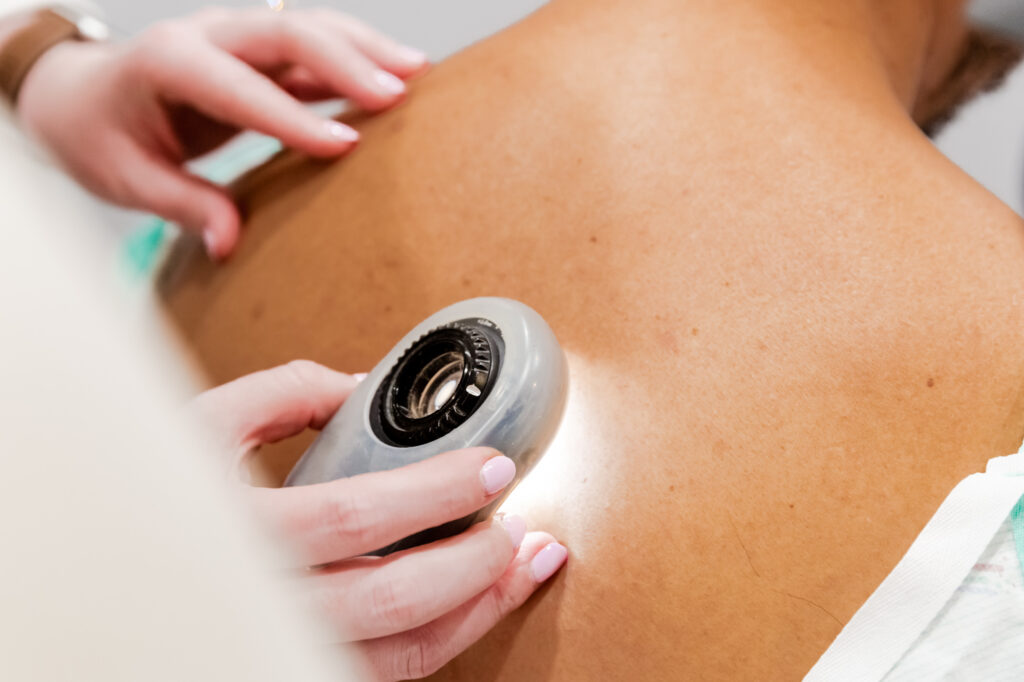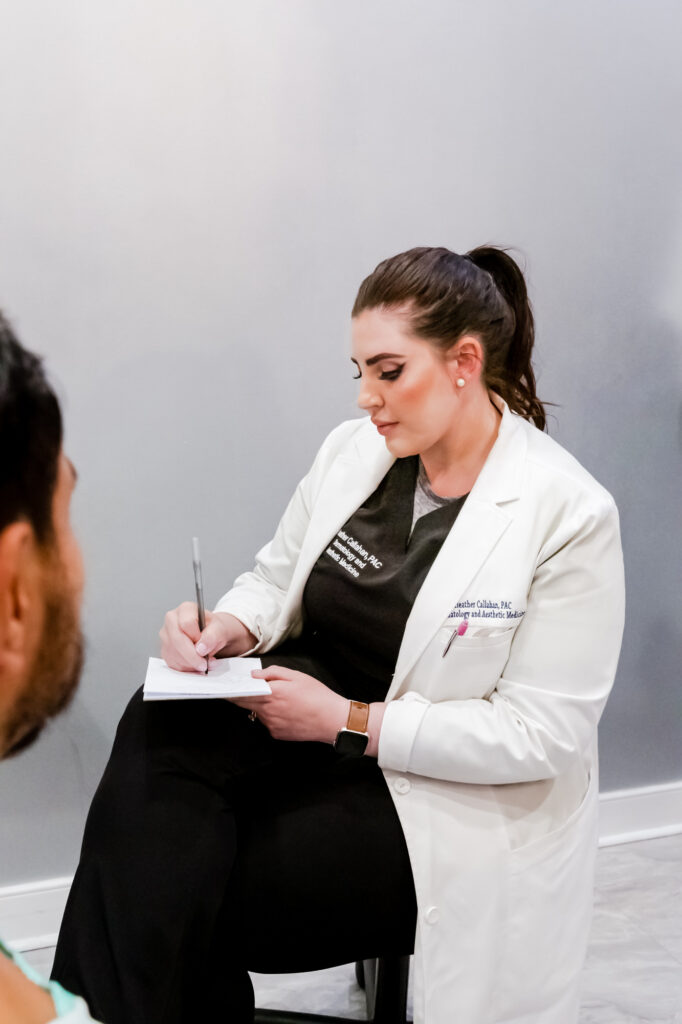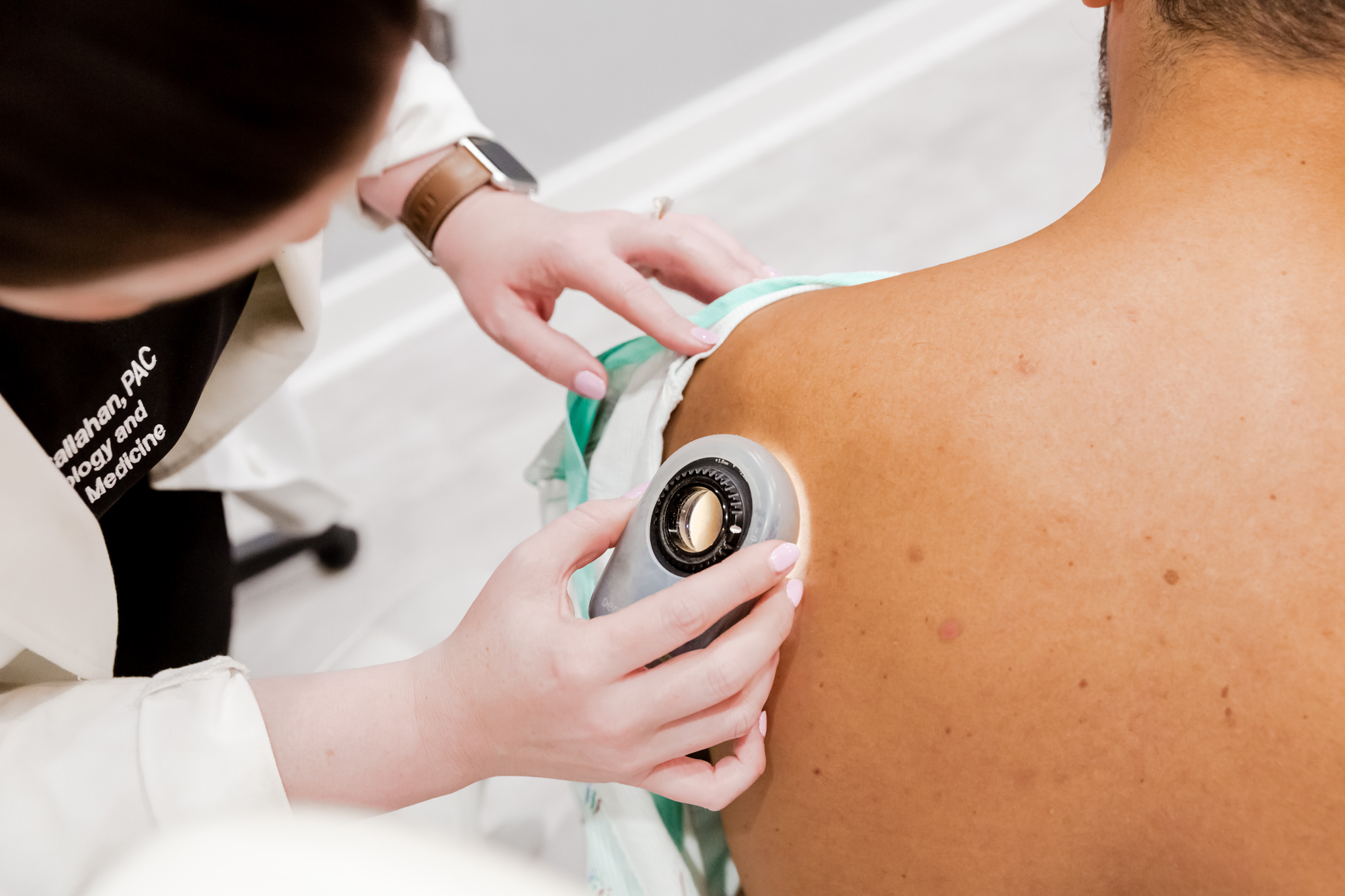Protect Your Skin with Preventive Care
Detection of skin cancer as early as possible can save lives. A full body skin exam is a thorough and non-invasive screening that helps identify suspicious moles, spots, or lesions before they become serious. At Dermestetics in Arlington, VA, we provide comprehensive full body skin exams to safeguard your skin health and offer peace of mind. Regular check-ups are necessary for early detection and effective treatment of skin conditions.

Expert Providers
At Dermestetics, our experienced dermatology team is committed to offering professional and detailed skin exams. We use advanced tools and techniques to ensure accurate assessments, helping you address concerns promptly. Whether you’re visiting for preventive care or seeking evaluation for a specific issue, our experts provide personalized attention and expert advice.


What’s great about our full body skin exams?
Learn More
Consultation Required?
Yes
Duration of Results
Immediate results upon examination
Sessions Needed
Recommended annually or as advised by your provider
Downtime
None
What It Treats
A full body skin exam is essential for detecting the following:
Suspicious moles or lesions
Skin cancer, including melanoma, basal cell carcinoma, and squamous cell carcinoma
Precancerous growths or changes in existing moles
Skin changes related to sun damage
Unusual rashes or other skin conditions
Understanding Skin Cancer and Prevention
1. Melanoma
- Extremely dangerous type of skin cancer, often identified by irregular moles.
- Early detection is critical for successful treatment.
- Signs include asymmetry, uneven borders, multiple colors, large diameters, or evolving characteristics.
2. Basal Cell Carcinoma (BCC)
- The most common form of skin cancer often appears as a pearly bump or scaly patch.
- It usually develops in sun-exposed areas like the face, neck, and arms.
- While slow-growing, it can cause damage if left untreated.
3. Squamous Cell Carcinoma (SCC)
- A common type of skin cancer often appears as a firm, red nodule or scaly patch.
- Frequently caused by cumulative sun exposure.
- Early treatment can prevent the spread of SCC to other areas.
4. Precancerous Lesions
- Actinic keratosis is a common precancerous condition that damages the skin, appearing as rough, scaly patches.
- When skin cancers are detected and treated at an early stage, the incidence of squamous cell carcinoma is reduced.
5. Sun Damage
- Chronic exposure to UV rays can lead to premature aging and increased cancer risk.
- Full body skin exams identify and address signs of sun damage to maintain skin health.
Symptoms and Warning Signs
- New moles or growths that appear after age 30
- Changes existing moles in its size, shape, or color
- Sores that do not heal or repeatedly return
- Rough, scaly patches or lesions that bleed easily
- Persistent itching, tenderness, or pain in specific areas

How it Works
How it Works
Our Comprehensive Approach to Full Body Skin Exams at Dermestetics in Arlington,VA
At Dermestetics, we provide a thorough and patient-focused process for your skin exam, ensuring all areas of concern are carefully evaluated.
Step 1: Patient History
We begin by discussing your medical history, family history of skin cancer, and any concerns you may have about specific moles or lesions.
Step 2: Complete Skin Assessment
Using advanced tools like dermoscopy, we examine your entire skin surface, including areas that are often overlooked, such as the scalp, soles of the feet, and behind the ears.
Step 3: Documentation and Diagnosis
Suspicious areas are documented with photographs or notes, and biopsies may be recommended if necessary for further analysis.
Step 4: Preventive Advice
Based on the findings, we provide personalized guidance on sun protection, skincare routines, and follow-up schedules to maintain healthy skin.
How is my exam personalized?
The way our exams are tailored is based on your personal risk factors, such as the type of skin, the amount of sun you have been exposed to, and any family history of skin cancer on your side. By targeting your unique needs, we provide thorough and effective evaluations.
How often should I schedule a full body skin exam?
We recommend an annual exam for most patients. However, individuals with a history of skin cancer, excessive sun exposure, or other risk factors may need more frequent evaluations.
Are you a good candidate for a full body skin exam?
You should consider scheduling an exam if you:
- Have a family or personal history of skin cancer
- Notice changes in your skin, such as new moles or growths
- Spend significant time outdoors or in tanning beds
- Want peace of mind about your skin health
What happens if a suspicious spot is found?
If any unusual moles or lesions are identified, we may recommend a biopsy or further diagnostic testing to determine the best course of action.
Prevention Tips for Skin Health
- Use sunscreen protection daily with an SPF of 30 or higher.
- Wear protective clothing and wide-brimmed hats when outdoors.
- Avoid tanning beds and excessive sun exposure.
- Perform monthly self-skin checks to monitor changes.
- Stay in the shade during peak UV hours, typically from 10 a.m. to 4 p.m.
Get Started
Ready to prioritize your skin health?

















